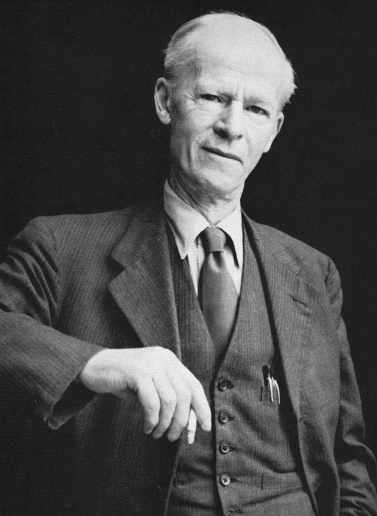
GEORGE Douglas Howard Cole (1889-1959) was an English Guild Socialist and an advocate for the co-operative movement. (Picture Credit: Free image from alchetron.com)
IT’S HARDLY a State Secret that National Liberals are interested in – and draw inspiration from – various alternative (and sometimes) non-conformist economic ideas. These ideas include, but are not restricted to, the co-operative movement, distributism, guild socialism, sovereign money and syndicalism.
Over the years, we’ve featured many articles examining these ideas. But we’ve not spent as much time looking at the people who’re credited with developing and/or promoting these ideas.
This is because we’re much more interested in ideas as opposed to personalities. Indeed, our view is that the idea must always take precedence over those individuals who serve it.
On saying that, we’re always interested to know more about those who do serve the idea. And it’s particularly useful to know if there’s anything in their background that would explain why they followed the path they did.
POINT OF REFERENCE
We refer to such people as a ‘Point of Reference’. By this we mean that they’ve said or done something that we find of great interest. (It should also be noted that one doesn’t even have to agree with a ‘Point of Reference’ to find that what they say or do is of great interest!)
However, it’s essential not to put anyone who is a ‘Point of Reference’ on a pedestal, so to speak.
This is because we humans are incredibly complex beings. It’s virtually impossible to think of anyone’s life (& ideas) in purely black & white terms. We feel the vast majority are made up of many, many, shades of grey! Thus, we must examine everyone in context, warts and all.
With the above in mind, for National Liberals one ‘Point of Reference’ has to be George Douglas Howard Cole, one of the earliest advocates of Guild Socialism (sometimes called Christian Socialism).
So, who was he, what was his life like & what were his influences?
George Douglas Howard Cole, commonly known as G.D.H. Cole, was an influential British political theorist, economist, historian, and a prominent figure in the cooperative and guild socialist movements.
Born on 25th September 1889 (and passing away on 14th January 1959) his diverse contributions have left an indelible mark on multiple disciplines and social movements.
EARLY LIFE & POLITICS
Cole was born into a family that valued education and intellectual pursuit. He attended St Paul’s School in London, where he excelled in his studies, particularly in the classics. He later attended Balliol College, Oxford, where he studied history.
During his time at Oxford, Cole became deeply interested in social and political issues. He joined the Fabian Society, which sought to advance its democratic socialist ideas via gradual and reformist approaches to socialism.
However, he soon became disillusioned with the Fabian approach and shifted towards guild socialism – sometimes called Christian Socialism – which was developed in 1906 by Samuel George Hobson (1870 – 4 January 1940). Hobson’s guild socialism was a movement that emphasised the control of industries by workers organized in
(The original guilds were formed during the Middle Ages, around the late 10th century. They were associations of artisans and merchants who oversaw the practice of their trade in a particular area. Guilds were intended to protect the interests of their members through mutual aid, regulation of trade standards, and control over the quality of goods and services provided. They played a crucial role in the economic and social life of medieval towns and cities, often holding significant political influence.)
Cole’s advocacy for guild socialism was not just theoretical. He was actively involved in the cooperative movement and worked towards the establishment of workers’ control over production. His influential works, such as Self-Government in Industry –
ACADEMIC CAREER
After World War I, Cole embarked on an academic career that saw him holding various positions at prestigious institutions. He became a fellow at University College, Oxford, and later a professor of social and political theory at the same institution. Cole’s academic work was extensive and covered a wide range of topics, including economics, history, political theory, and literature.
One of his most significant contributions was his work on the history of socialist thought. His multi-volume
A History of Socialist Thought –
https://archive.org/details/historyofsociali0000cole – remains one of the most important reference for scholars studying the development of socialist ideas and movements.
Cole’s economic theories were closely linked to his political beliefs. He was a critic of both capitalism and Soviet-style communism. He advocated a ‘third way’ that combined elements of socialism and cooperative economics. These ideas influenced the development of the British Labour Party’s policies, particularly in the areas of social welfare and economic planning.
LITERATURE
In addition to his academic and political work, Cole was also a prolific writer of detective fiction. Alongside his wife, Margaret Cole, he authored over 30 mystery novels that were well-received by readers. Their collaborative works added a unique dimension to his already extensive intellectual portfolio
LEGACY & IMPACT
G.D.H. Cole’s legacy & impact is multifaceted. He contributed to (and was particularly interested in) political theory, economics, history, and literature. His ideas on guild socialism, cooperative economics, and workers’ control continue to inspire scholars and activists – including, as we’ve previously noted, National Liberals.
It has been said that Cole’s commitment to social justice, democracy, and intellectual rigor serves as a model for those seeking to create a more equitable and just society. As such, we think that the man & particularly his ideas are worthy of further study.
































